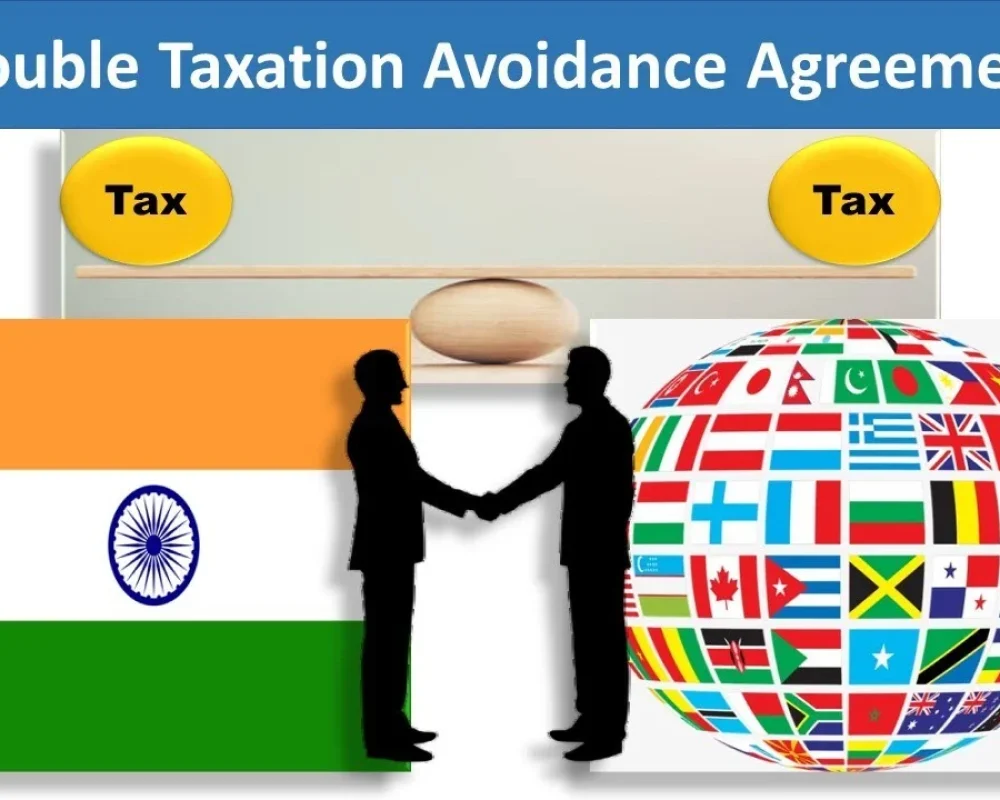Double Taxation Avoidance Agreements (DTAA)

Double Taxation Avoidance Agreements (DTAA)
Double Taxation Avoidance Agreements (DTAA) are international treaties signed between two countries to eliminate or mitigate double taxation of income or profits earned by residents of the countries in each other’s jurisdictions. These agreements aim to promote cross-border trade and investment by providing clarity and certainty on tax matters and avoiding situations where the same income is taxed twice in both the source and resident countries.
1. Tax Residency Rules: DTAA typically define the criteria for determining the tax residency status of individuals and businesses. This helps to determine which country has the primary right to tax certain types of income.
2. Allocation of Taxing Rights: DTAA specify the allocation of taxing rights between the contracting countries for different types of income, such as dividends, interest, royalties, and capital gains. They often provide for either exemption or reduced rates of withholding tax on cross-border payments of such income.
3. Methods to Eliminate Double Taxation: DTAA provide mechanisms to eliminate double taxation by allowing taxpayers to claim relief for taxes paid in the source country against taxes payable in the resident country. This can be done through the credit method or the exemption method, depending on the provisions of the agreement


4. Mutual Agreement Procedure (MAP): DTAA include provisions for a Mutual Agreement Procedure (MAP) to resolve disputes between the tax authorities of the contracting countries regarding the interpretation or application of the agreement. Taxpayers can seek relief through the MAP mechanism if they believe they are being subjected to double taxation contrary to the provisions of the agreement.
5. Exchange of Information: Many DTAA include provisions for the exchange of information between the tax authorities of the contracting countries to prevent tax evasion and ensure compliance with the agreement. This helps to enhance transparency and facilitate cooperation in tax matters.
6. Non-discrimination: DTAA often include provisions to prevent discrimination against residents of one contracting country in favor of residents of the other country. This ensures that taxpayers are treated fairly and equally under the agreement.
7. Limitation of Benefits (LOB) Clause: Some DTAA include a Limitation of Benefits (LOB) clause to prevent the abuse of treaty benefits by taxpayers who do not have a genuine connection to either contracting country. The LOB clause sets out conditions that taxpayers must meet to qualify for treaty benefits.
Double Taxation Avoidance Agreements play a crucial role in facilitating cross-border trade and investment by providing a framework for the allocation of taxing rights and the elimination of double taxation. They help to reduce tax barriers, promote economic cooperation, and foster a conducive environment for international business activities.


Why Us?
Singh Suri & Company, Chartered Accountants, offer a range of services related to Double Taxation Avoidance Agreements (DTAA) to assist businesses and individuals in navigating international tax matters and maximizing tax efficiency in cross-border transactions.
1. DTAA Advisory Services: We provide advisory services to businesses and individuals on the implications of DTAA for their international transactions and tax planning strategies. We analyze the provisions of relevant DTAA, assess their impact on clients’ tax liabilities, and provide recommendations to optimize tax efficiency and minimize double taxation.
2. Tax Residency Determination: We assist clients in determining their tax residency status for purposes of DTAA. We analyze clients’ personal or business circumstances, including their presence, activities, and ties in different countries, to determine the country of tax residency and the applicability of DTAA provisions.
3. Tax Planning and Structuring: We develop tax planning and structuring strategies to help clients minimize tax liabilities and optimize tax efficiency under DTAA. We analyze clients’ international transactions, investment structures, and business operations to identify opportunities for tax optimization and recommend appropriate structures and arrangements to achieve tax savings.
4. Cross-border Transaction Advisory: We provide advisory services on cross-border transactions, such as mergers, acquisitions, investments, and divestitures, taking into account the provisions of relevant DTAA. We assess the tax implications of the transactions, analyze the applicability of DTAA provisions, and provide guidance on structuring transactions to minimize tax risks and maximize tax benefits.
5. Withholding Tax Compliance: We assist businesses in complying with withholding tax requirements under DTAA for cross-border payments of dividends, interest, royalties, and other income. We ensure that clients withhold the correct amount of tax, apply the appropriate tax treaty rates, and prepare and file withholding tax returns in compliance with DTAA provisions.


6. Tax Treaty Relief Claims: We help clients claim relief from double taxation under DTAA through the appropriate mechanisms provided in the agreements. We assist clients in preparing and filing relief claims, such as foreign tax credit claims or exemption applications, with the tax authorities of the relevant countries to eliminate or mitigate double taxation.
7. Dispute Resolution and MAP Proceedings: We represent clients in dispute resolution proceedings and Mutual Agreement Procedure (MAP) cases under DTAA. We assist clients in resolving disputes with tax authorities regarding the interpretation or application of DTAA provisions, negotiate settlements, and advocate on behalf of clients to achieve favorable outcomes.
8. DTAA Compliance and Documentation: We help businesses maintain compliance with DTAA requirements by preparing and maintaining documentation to support treaty benefits claims. We ensure that clients have the necessary documentation, such as residency certificates and tax residency certificates, to avail themselves of treaty benefits and avoid challenges from tax authorities.
9. Training and Education: We conduct training programs and workshops to educate businesses and professionals on DTAA provisions, compliance requirements, and recent developments. We help clients understand the implications of DTAA for their international tax planning and compliance efforts and train them to ensure compliance with treaty provisions.
These are some of the key DTAA services provided by Singh Suri & Company, Chartered Accountants to assist businesses and individuals in navigating international tax matters, maximizing tax efficiency, and minimizing double taxation risks in cross-border transactions.



